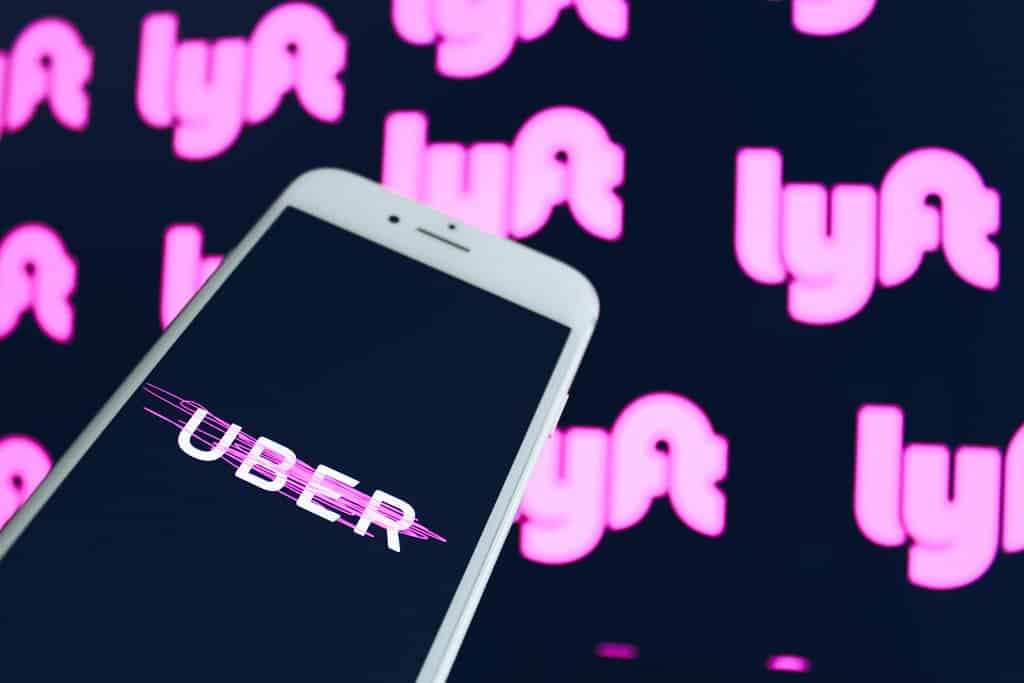
Fred Messner is a student at Harvard Law School.
As “Striketober” rolls on, New York City taxi drivers are escalating their campaign for relief from debts they incurred to purchase medallions whose value has plummeted in the wake of Uber and Lyft’s expansion. The drivers—primarily immigrants and people of color—have been agitating for years for help getting out from under predatory loans that average nearly $500,000. While Mayor Bill de Blasio did eventually announce a $65 million relief fund in March of this year, that initiative has been roundly criticized as grossly inadequate. As The Baffler explained last week in a thorough write-up of the drivers’ campaign, de Blasio’s plan would leave drivers with monthly payments so onerous that that their post-debt payment wages would still fall below the minimum wage. The drivers recently took their fight to City Hall, establishing a “24/7 protest encampment . . . [and] distributing leaflets with the headline ‘TELL MAYOR DEBLASIO: Help the Cabbies, Not the Banks!” On Monday morning, Labor Notes reported that the drivers had announced plans for a hunger strike beginning on Wednesday of this week. “The only solution to this crisis is a city-backed guarantee on medallion debt,” the drivers said in a press release, “and we’ll be in the streets until we win it.”
Elsewhere, Hollywood will be heading back to work today, as the tentative agreement between the IATSE and the AMPTP, the entertainment industry’s collective bargaining representative, has averted a strike—for now. As Kevin explained in detail yesterday, “IATSE appears to have secured much of what it was demanding from the studios,” but some union members have expressed severe disappointment with key terms in the agreement. More detail on the agreement’s reception has continued to emerge over the last 24 hours. Yesterday, Variety and IndieWire both reported on differences of opinion within the union’s rank and file while IATSE vice president Michael F. Miller noted in an interview with NPR that he “suspect[s]” the deal to be “overwhelmingly ratified.” No date has been announced yet for a ratification vote.
Bloomberg Law published a roundup of potential legal challenges to the Biden administration’s soon-to-be-released emergency rule for Covid testing or vaccination. While the exact contours of the rule await stakeholder meetings scheduled for the beginning of this week, OSHA, the agency promulgating the rule, is expected to require either vaccines or regular testing for the tens of millions of workers subject to its jurisdiction. In response, Bloomberg suggests, opponents are likely to “challenge OSHA’s authority to implement such a sweeping regulation,” and Republican lawmakers may attempt to craft state-level exemptions that avoid federal preemption. Of course, some GOP governors like Texas’ Greg Abbott and Florida’s Ron DeSantis have already issued executive orders and called for legislation protecting workers who refuse to get vaccinated. The promulgation of a federal vaccination standard would open up a new phase of litigation over these requirements.
Finally, the New York Times hosted an column yesterday by a member of its editorial board detailing the rideshare industry’s many broken promises. “Piece by piece,” the article argues, “the mythology around ridesharing is falling apart.” The column focuses mainly on a new study that challenges Uber and Lyft’s specious claims that “their services are a boon to the environment,” but it also includes a brief reference to Prop. 22, the disastrous ballot measure that “cemented app-based drivers’ status as contractors while also affording them limited protections.” The Times’ clear-eyed description of the law as “all but ensur[ing] that thousands of workers would never gain the dignity of a consistent living wage—ostensibly to help safeguard the company’s [sic] not-quite thriving business models” should be encouraging. The gig companies have done tremendous damage to American labor standards; that their destructive influence is being recognized as such may be a sign that the tide is turning.






Daily News & Commentary
Start your day with our roundup of the latest labor developments. See all
July 11
Regional director orders election without Board quorum; 9th Circuit pauses injunction on Executive Order; Driverless car legislation in Massachusetts
July 10
Wisconsin Supreme Court holds UW Health nurses are not covered by Wisconsin’s Labor Peace Act; a district judge denies the request to stay an injunction pending appeal; the NFLPA appeals an arbitration decision.
July 9
the Supreme Court allows Trump to proceed with mass firings; Secretary of Agriculture suggests Medicaid recipients replace deported migrant farmworkers; DHS ends TPS for Nicaragua and Honduras
July 8
In today’s news and commentary, Apple wins at the Fifth Circuit against the NLRB, Florida enacts a noncompete-friendly law, and complications with the No Tax on Tips in the Big Beautiful Bill. Apple won an appeal overturning a National Labor Relations Board (NLRB) decision that the company violated labor law by coercively questioning an employee […]
July 7
LA economy deals with fallout from ICE raids; a new appeal challenges the NCAA antitrust settlement; and the EPA places dissenting employees on leave.
July 6
Municipal workers in Philadelphia continue to strike; Zohran Mamdani collects union endorsements; UFCW grocery workers in California and Colorado reach tentative agreements.